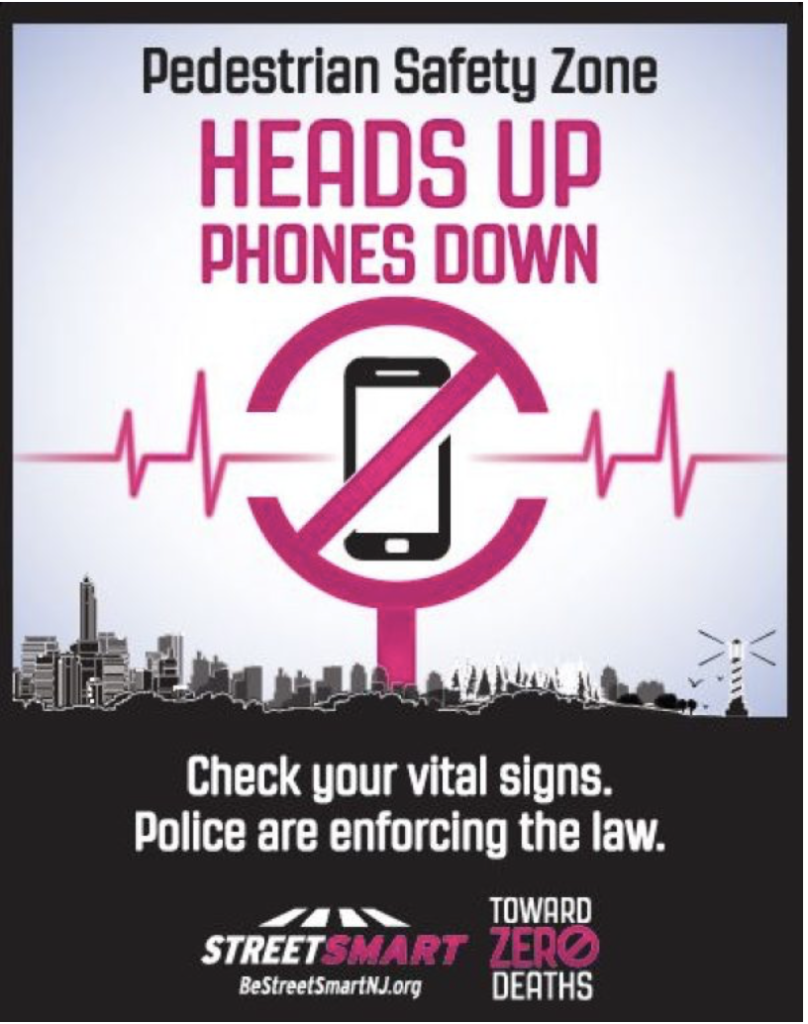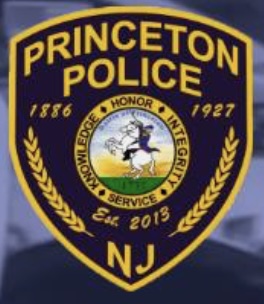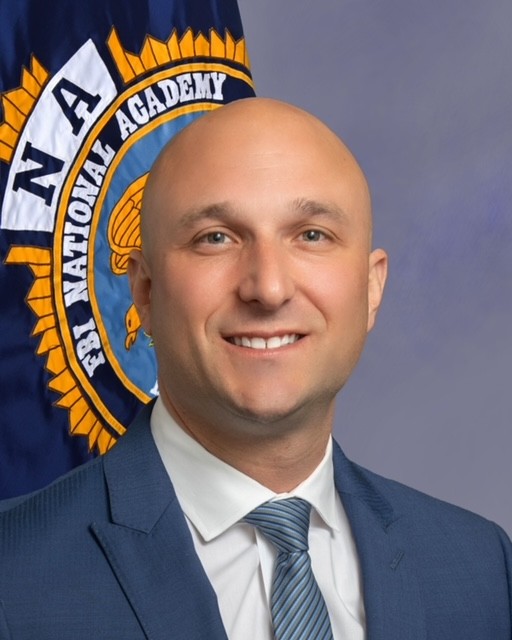Princeton is a vibrant, evolving town that continues to grow with each passing year. As new areas are developed and neighborhoods change, the police department remains steadfast in its commitment to prioritizing traffic safety. The term “traffic” is broad and includes the safety of vehicles, bicyclists, and pedestrians navigating our roadways and sidewalks.
TRAFFIC SAFETY & ENFORCEMENT
 A key component in identifying and addressing traffic-related concerns in Princeton is the Traffic Safety Committee. This committee is comprised of elected officials, community representatives, municipal engineers, and police officers. Together, they work collaboratively and meticulously to enhance safety for all roadway users. Many of the committee’s problem-solving strategies are rooted in traffic engineering, including traffic studies, roadway design, and long-term development planning. While the Princeton Engineering Department leads the town’s traffic engineering efforts, the police department works closely with our municipal partners in the evaluation and implementation of roadway safety improvements. Although our officers are not typically licensed engineers, several members of the department’s Traffic Safety Bureau have completed basic and advanced traffic engineering courses for police officers. These officers provide invaluable input on potential traffic changes through data collection and crash report analysis. Additionally, the officer’s frontline experience provides real-world insights that can be extremely beneficial in framing engineering decisions.
A key component in identifying and addressing traffic-related concerns in Princeton is the Traffic Safety Committee. This committee is comprised of elected officials, community representatives, municipal engineers, and police officers. Together, they work collaboratively and meticulously to enhance safety for all roadway users. Many of the committee’s problem-solving strategies are rooted in traffic engineering, including traffic studies, roadway design, and long-term development planning. While the Princeton Engineering Department leads the town’s traffic engineering efforts, the police department works closely with our municipal partners in the evaluation and implementation of roadway safety improvements. Although our officers are not typically licensed engineers, several members of the department’s Traffic Safety Bureau have completed basic and advanced traffic engineering courses for police officers. These officers provide invaluable input on potential traffic changes through data collection and crash report analysis. Additionally, the officer’s frontline experience provides real-world insights that can be extremely beneficial in framing engineering decisions.
 Traffic enforcement is another core responsibility of the police department in ensuring roadway safety. Each month, the department designates specific directed enforcement streets, allowing officers to focus their efforts on locations with identified traffic concerns. These areas are selected based on a range of factors, including resident complaints, observations by the Traffic Safety Bureau, crash trends, feedback from patrol squads, and issues raised during committee meetings. Once designated, enforcement streets are shared with patrol supervisors, who assign officers to conduct targeted enforcement. At the end of each month, patrol supervisors compile and submit enforcement summaries to the Traffic Safety Bureau and command staff, detailing actions taken and results observed.
Traffic enforcement is another core responsibility of the police department in ensuring roadway safety. Each month, the department designates specific directed enforcement streets, allowing officers to focus their efforts on locations with identified traffic concerns. These areas are selected based on a range of factors, including resident complaints, observations by the Traffic Safety Bureau, crash trends, feedback from patrol squads, and issues raised during committee meetings. Once designated, enforcement streets are shared with patrol supervisors, who assign officers to conduct targeted enforcement. At the end of each month, patrol supervisors compile and submit enforcement summaries to the Traffic Safety Bureau and command staff, detailing actions taken and results observed.
In addition to routine enforcement, the department periodically launches targeted initiatives to address specific traffic issues. For example, in June, the department rolled out the “Walk Your Wheels” campaign, an enforcement and education effort seeking to eliminate bicycle riding on sidewalks in prohibited areas. Officers from both the Traffic Safety and Patrol Bureaus were assigned to engage in enforcement and education within key zones. The initiative was reinforced through public outreach, including social media messaging and electronic variable message boards deployed in the central business district.
 Furthermore, the police department actively participates in the Street Smart Campaign. This evidence-based public education campaign promotes the use of safe habits and routines by motorists, cyclists, and pedestrians, particularly in areas where there is an abundance of each. Through high-visibility enforcement, educational materials, and community engagement, the Street Smart Campaign strives to educate the public on safe crossing habits, cycling safety measures, pedestrian visibility, and driver awareness. By reinforcing key safety messages such as “Heads Up, Phones Down,” and “Stop for Pedestrians in a Crosswalk,” the campaign strengthens the department’s commitment to the wellbeing of all roadway users.
Furthermore, the police department actively participates in the Street Smart Campaign. This evidence-based public education campaign promotes the use of safe habits and routines by motorists, cyclists, and pedestrians, particularly in areas where there is an abundance of each. Through high-visibility enforcement, educational materials, and community engagement, the Street Smart Campaign strives to educate the public on safe crossing habits, cycling safety measures, pedestrian visibility, and driver awareness. By reinforcing key safety messages such as “Heads Up, Phones Down,” and “Stop for Pedestrians in a Crosswalk,” the campaign strengthens the department’s commitment to the wellbeing of all roadway users.
COMMUNITY EDUCATION
 One of the most effective ways to promote traffic safety is through community education. The police department plays a vital role in encouraging safe driving, walking, and cycling behaviors through proactive outreach that aims to prevent accidents and foster a culture of safety. This effort begins with our youth, who are among the most vulnerable road users. Each year, the department proudly hosts the Wheels Rodeo, an engaging community event that promotes bicycle safety and reinforces roadway laws for young riders. The event offers children the chance to develop critical biking skills in a safe, supervised setting while learning about helmet use, hand signals, and common traffic scenarios. Officers guide participants through interactive safety stations, answer questions, and strengthen positive community relationships.
One of the most effective ways to promote traffic safety is through community education. The police department plays a vital role in encouraging safe driving, walking, and cycling behaviors through proactive outreach that aims to prevent accidents and foster a culture of safety. This effort begins with our youth, who are among the most vulnerable road users. Each year, the department proudly hosts the Wheels Rodeo, an engaging community event that promotes bicycle safety and reinforces roadway laws for young riders. The event offers children the chance to develop critical biking skills in a safe, supervised setting while learning about helmet use, hand signals, and common traffic scenarios. Officers guide participants through interactive safety stations, answer questions, and strengthen positive community relationships.
The department also partners with the Greater Mercer Transportation Management Association (Greater Mercer TMA) to deliver pedestrian and bicycle safety presentations in schools. In addition, officers assisted weekly with PTO-sponsored Walk-to-School Wednesdays, which focused on increasing the number of students who walk, bike, or take the bus to school, helping reduce vehicle congestion during morning and afternoon drop-offs. These efforts align with Princeton’s Vision Zero initiative, a town-wide strategy to prioritize safety for all roadway users in planning and design.
Educational efforts are not limited to the youth, as the police department seeks to educate all community members. The department’s Traffic Safety Bureau is currently working with the Brain Injury Alliance of New Jersey to host a public seminar focused on vulnerable road users and relevant traffic statutes. This campaign, directed at pedestrians and cyclists, reflects the department’s broader commitment to inclusive, community-focused safety education.
CHANGING WITH THE TIMES
 As our community continues to grow and change, the Princeton Police Department’s dedication to improving traffic safety remains resolute. Our initiatives in engineering, enforcement, and education are most effective when supported by strong community partnerships. Traffic safety is a shared responsibility. Whether you drive, bike, or walk, a safer environment benefits everyone. It’s not just a government or police matter, it’s a community effort. When we all play our part, we create safer streets, a stronger community, and a better quality of life for all.
As our community continues to grow and change, the Princeton Police Department’s dedication to improving traffic safety remains resolute. Our initiatives in engineering, enforcement, and education are most effective when supported by strong community partnerships. Traffic safety is a shared responsibility. Whether you drive, bike, or walk, a safer environment benefits everyone. It’s not just a government or police matter, it’s a community effort. When we all play our part, we create safer streets, a stronger community, and a better quality of life for all.

Matthew Solovay joined the Princeton Township Police Department in January 2005 and has worked in all aspects of the department, both in the Township and now in a consolidated police department. From January 2005-December 2009, He served in the Patrol Bureau until assigned to Traffic Safety Bureau in 2010. In 2011, Solovay was promoted to the rank of Corporal then reassigned back to patrol, where he remained there through consolidation. In January 2014, he helped establish the police deparment Canine Program and later became Canine Handler in the newly consolidated police dept. In January 2016, he was promoted to the rank of Sergeant and spent the next 5 years as a supervisor on patrol. In 2020, promoted to rank of Lieutenant and commanded the Operations Division and Investigative Division of the police deparment, while also serving as accreditation manager, field training commander and head of policy development and training. Solovay has bachelors degree in criminal justice from Seton Hall University, Graduate Certificate in criminal justice education from University of Virginia and a master degree in administrative science from Farleigh Dickinson University. Most recently, he was a graduate of the 294th session of FBI National Academy and was promoted to Captain in September 2024.
